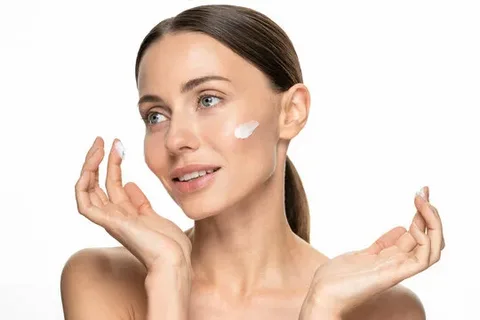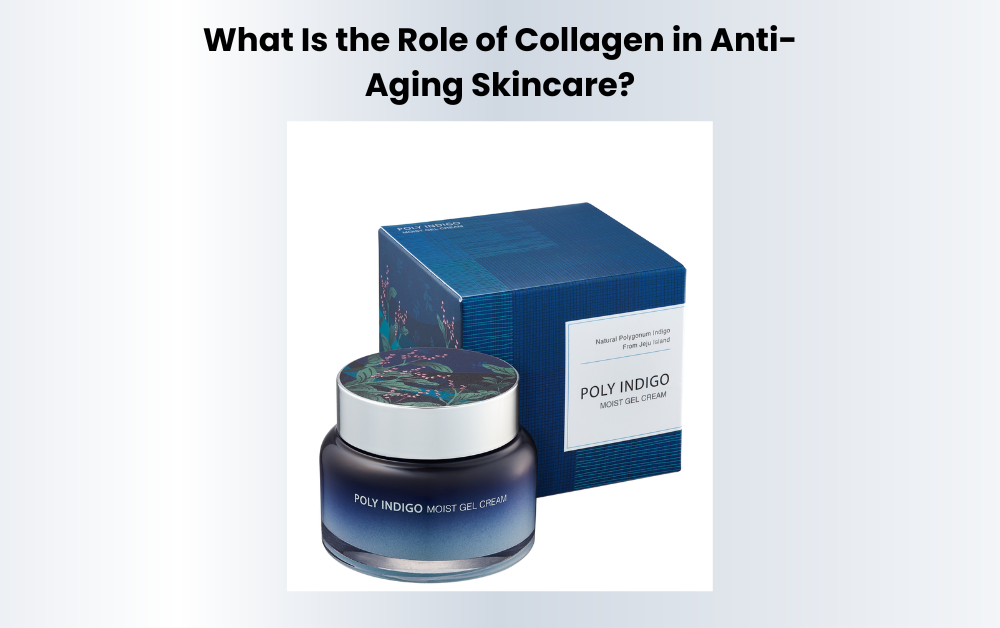As we age, our skin goes through many changes. One of the most noticeable signs of aging is the appearance of wrinkles, fine lines, and sagging skin. While there are many factors that contribute to these changes, collagen plays a huge role. If you’ve ever wondered why your skin starts to lose its firmness and elasticity, understanding collagen is key. In this blog, we’ll dive into what collagen is, how it impacts your skin, and why it’s important in anti-aging skincare.
What Is Collagen?
Collagen is the most abundant protein found in the human body. It makes up about 30% of the body’s total protein content and is a major component of our skin, muscles, bones, and connective tissues. Collagen acts as a structural framework, providing support and strength to tissues.
Collagen in the Skin
In the skin, collagen is present in the dermis, which is the middle layer. It helps the skin stay firm, smooth, and elastic. Collagen fibers form a supportive network that holds everything together, which is why when collagen production slows down or decreases, the skin begins to show visible signs of aging.
How Does Collagen Affect Skin Aging?

As we age, our body’s natural collagen production decreases. From around the age of 25, the body starts producing about 1% less collagen each year. By the time we reach our 40s, the signs of collagen loss are more noticeable. These include:
1. Wrinkles and Fine Lines
Collagen helps to maintain the skin’s structure and strength. As its levels decrease, the skin loses its ability to bounce back, leading to the formation of wrinkles and fine lines, especially around the eyes, mouth, and forehead.
2. Sagging Skin
Collagen is crucial in keeping the skin firm and tight. With less collagen, the skin begins to sag, leading to a loss of contour in areas like the cheeks, jawline, and neck.
3. Thinner Skin
Collagen also helps the skin remain thick and resilient. As collagen breaks down, the skin becomes thinner and more fragile. This can make the skin more prone to damage and bruising.
4. Dull and Uneven Skin Tone
Collagen helps to keep the skin smooth and plump, promoting a healthy, radiant appearance. When collagen decreases, skin can look dull and uneven, which is often a visible sign of aging.
Why Is Collagen Important for Anti-Aging Skincare?
Collagen plays a pivotal role in the health and appearance of your skin. When you incorporate collagen in your anti-aging skincare routine, you’re essentially helping to restore and maintain the firmness, smoothness, and overall health of your skin. Let’s look at how collagen contributes to the anti-aging process:
1. Reduces Wrinkles and Fine Lines
When collagen production slows down, fine lines and wrinkles start to form. By supporting collagen production in the skin, you can help plump up the skin and reduce the visibility of wrinkles. This is why many anti-aging skincare products include collagen-boosting ingredients.
2. Improves Skin Elasticity
Collagen maintains skin elasticity, which means your skin can stretch and bounce back. As collagen decreases, the skin becomes less elastic and begins to sag. By boosting collagen, you can help improve skin’s elasticity and keep it looking more youthful.
3. Increases Skin Thickness
Collagen helps the skin stay thick and strong. A decrease in collagen can lead to thinning skin, which is more prone to damage. Using collagen-boosting products can help restore the thickness and strength of the skin.
4. Enhances Skin Hydration
Collagen plays a role in keeping the skin’s moisture levels balanced. When the collagen levels are optimal, your skin retains moisture better, keeping it hydrated and glowing. As collagen decreases, the skin can become drier, leading to dullness and an uneven texture.
How to Boost Collagen Production for Anti-Aging
Now that we understand why collagen is important for youthful skin, let’s talk about how we can boost collagen production. There are a few ways to increase collagen levels, both through skincare products and lifestyle changes.
1. Use Skincare Products with Collagen-Building Ingredients
One of the most direct ways to boost collagen production is by using skincare products that encourage your skin to produce more collagen. Here are some ingredients to look for:
Vitamin C
Vitamin C is a powerful antioxidant that helps to stimulate collagen production. It also helps to protect the skin from environmental damage that can break down collagen. Products containing ascorbic acid or vitamin C are great for boosting collagen and improving the overall health of the skin.
Retinol (Vitamin A)
Retinol is another popular ingredient in anti-aging skincare. It helps to increase collagen production by promoting skin cell turnover. As retinol encourages the skin to shed old, damaged cells, it can help the body produce newer, healthier skin cells and collagen fibers.
Peptides
Peptides are short chains of amino acids that are the building blocks of proteins like collagen. When applied topically, peptides can help signal to your skin to produce more collagen. Look for products that contain palmitoyl pentapeptide-4 or copper peptides for collagen-boosting effects.
Hyaluronic Acid
While hyaluronic acid doesn’t directly increase collagen, it helps keep the skin hydrated. Hydrated skin is more resilient and better able to support collagen production. Additionally, many hyaluronic acid-based products also contain peptides and antioxidants that support collagen health.
Alpha Hydroxy Acids (AHAs)
AHAs are exfoliating acids that remove dead skin cells from the surface. By regularly exfoliating, you can improve collagen production and help fresh skin cells come to the surface. This gives your skin a more youthful glow and smoother appearance.
2. Protect Your Skin from Collagen Breakdown
Collagen doesn’t just break down because of aging—it can also be damaged by environmental factors such as UV exposure, pollution, and smoking. To preserve collagen, you need to protect your skin.
Wear Sunscreen Daily
One of the most important things you can do for collagen health is to protect your skin from the sun. UV rays break down collagen and cause premature aging. Make sure to use a broad-spectrum sunscreen with SPF 30 or higher every day, even on cloudy days.
Avoid Smoking
Smoking decreases blood flow to the skin and introduces toxins that break down collagen. If you want to keep your skin healthy and firm, quitting smoking is one of the best things you can do for your skin.
Eat a Collagen-Rich Diet
Your diet plays an important role in supporting collagen production. Foods high in protein (which contains amino acids like glycine and proline) are essential for collagen formation. Some great collagen-boosting foods include:
- Bone broth
- Chicken and turkey
- Fish and seafood
- Eggs
- Leafy greens and berries (rich in vitamin C)
Additionally, vitamin C-rich foods like oranges, strawberries, and bell peppers can help boost your body’s ability to produce collagen naturally.
3. Consider Collagen Supplements
If you’re looking for an extra collagen boost, you might want to consider taking collagen supplements. These are usually available in the form of powders, capsules, or drinks and contain hydrolyzed collagen peptides, which are easily absorbed by the body.
Studies show that collagen supplements can help improve skin elasticity, reduce wrinkles, and support overall skin health. However, it’s always a good idea to talk to your doctor before starting any new supplements.
Conclusion: The Importance of Collagen in Anti-Aging Skincare
Collagen plays a vital role in keeping our skin healthy, youthful, and firm. As we age, collagen production naturally declines, leading to common signs of aging like wrinkles, sagging skin, and thinner skin. However, there are many ways to slow down this process and boost collagen production—through skincare products, lifestyle changes, and a healthy diet.
By incorporating collagen-boosting ingredients like vitamin C, retinol, and peptides into your routine, using sunscreen, avoiding smoking, and considering collagen supplements, you can help keep your skin looking youthful and radiant.
Remember, collagen isn’t just about looking younger; it’s also about maintaining the health and strength of your skin for years to come.
For more insightful articles related to this topic, feel free to visit: Techners.













Leave a Reply